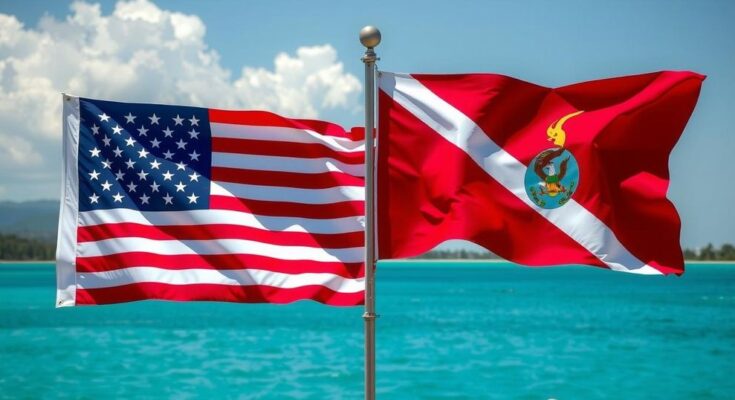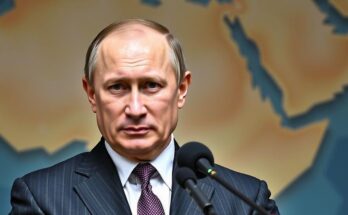On December 10, 2024, the US and Trinidad and Tobago renewed military cooperation agreements, including a revised Status of Forces Agreement. Controversy erupted over claims that this would allow US troop deployments related to conflicts in Venezuela, which Prime Minister Rowley strongly denied, emphasizing Trinidad’s commitment to peace in the region.
On December 10, 2024, the United States and Trinidad and Tobago finalized several military cooperation agreements, emphasizing enhanced defense collaboration between the two nations. The agreements include a renewed Status of Forces Agreement (SOFA) enabling interoperability between their armed forces and an extension of the Caribbean Basin Security Initiative Technical Assistance Field Team (CBSI-TAFT). US Ambassador Candace Bond described these accords as offering unprecedented opportunities for defense cooperation, while Admiral Alvin Holsey of US Southern Command noted their potential to deepen strategic collaboration on various pressing issues.
Controversy arose when a local news outlet suggested that the updated SOFA would permit the US to deploy troops in case of conflicts, specifically referencing tensions in Venezuela. However, Prime Minister Keith Rowley firmly rejected these interpretations, stating that Trinidad and Tobago would not facilitate any military actions aimed at Venezuela. He characterized the news report as “irresponsibility of the worst kind,” reinforcing the country’s commitment to regional peace and affirming Trinidad and Tobago’s historical role as a mediator in conflicts involving Venezuela.
Despite calls for clarity regarding the SOFA details, Prime Minister Rowley declined to divulge information, asserting that his government seeks strong relations with both the United States and Venezuela. This announcement coincides with ongoing energy sector negotiations, including offshore natural gas projects between Trinidad and multinational corporations, despite the backdrop of US sanctions on Venezuela. Regional tensions remain high, particularly following increased military activities by the United States and its allies, which have been met with stern denunciation from Caracas.
The recent renewal of military cooperation agreements between the United States and Trinidad and Tobago reflects a strategic shift in regional defense posture. Following the original SOFA signed in 2007, revised and extended agreements indicate a deepening partnership amid ongoing geopolitical tensions in the Caribbean, particularly concerning Venezuela. The controversy surrounding possible troop deployments underscores the complexities of regional security and international relations in the context of US interests in Latin America.
In summary, the renewal of military agreements between the United States and Trinidad and Tobago highlights significant developments in defense relations. While the Trinidadian government seeks to maintain regional peace and strong ties with both the US and Venezuela, the implications of these agreements may provoke further scrutiny and debate. Prime Minister Rowley’s strong denials regarding troop deployments reflect the delicate balance his administration aims to sustain amidst growing geopolitical tensions.
Original Source: venezuelanalysis.com




